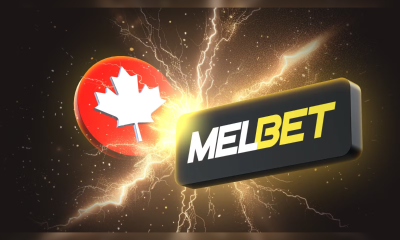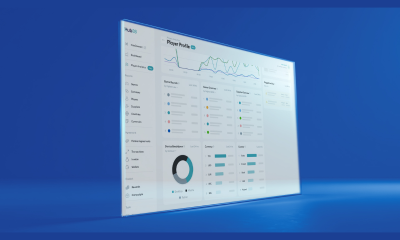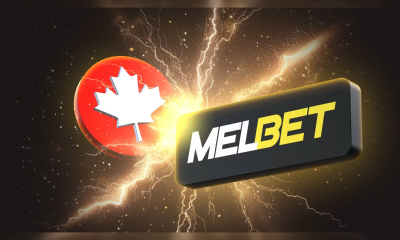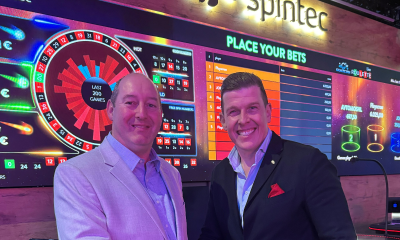Compliance Updates
Vixio Announces Expansion of Infosecurity Requirements in Groundbreaking Technical Compliance Tool
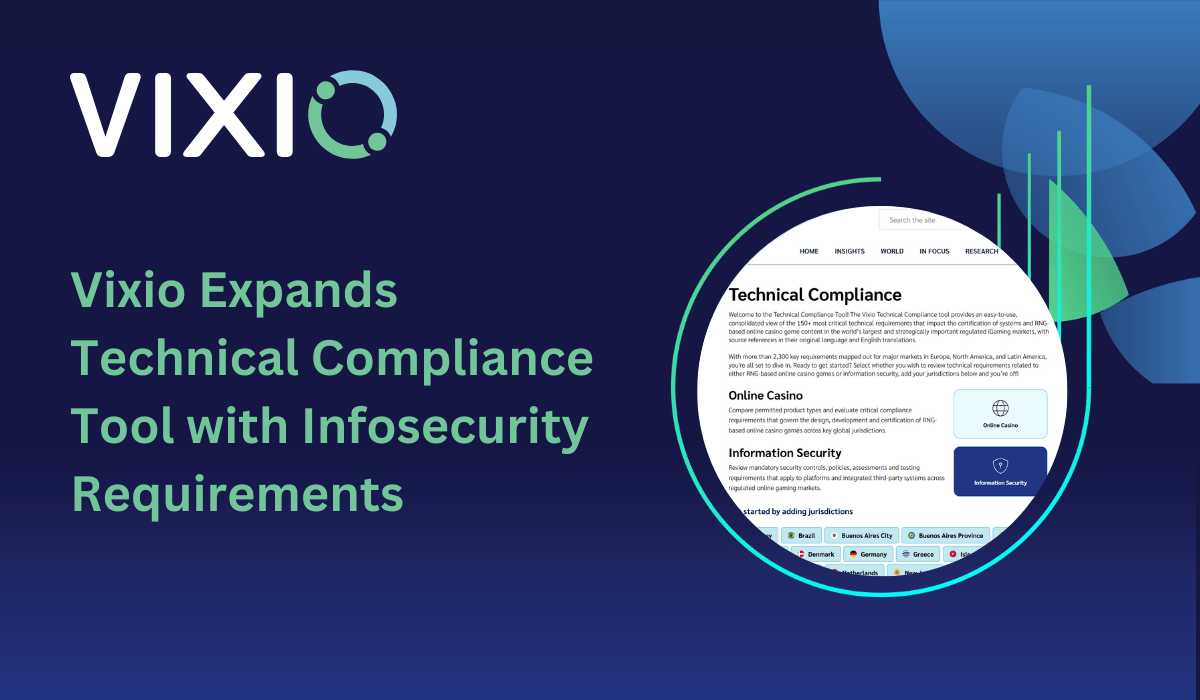
Vixio is the only provider in the industry with this unique, centralised information security for technical compliance
Vixio, a leading provider of regulatory intelligence solutions, is proud to announce that it has expanded its groundbreaking Technical Compliance Tool to cover over 80 different information security requirements in two dozen leading regulated jurisdictions worldwide.
The Technical Compliance Tool is the first of its kind to offer a one-stop solution for navigating technical requirements for gambling operators and suppliers and the addition of information security requirements now allows users to compare infosec standards globally to help maintain compliance and prepare for expansion to additional jurisdictions.
“We are delighted with the uptake in our powerful Technical Compliance Tool since it was launched at an industry event in London in September,” explains James Kilsby, Chief Analyst, Vixio. “Feedback from clients has reaffirmed our view that technical compliance is a diverse and increasingly challenging area within the online gambling industry. We are very proud to expand our product to support operators and suppliers as they position themselves to meet critical infosec compliance requirements on a multi-jurisdictional basis.”
The expansion to include information security compliance takes it a step further at a critical time; amid heightened concerns about cybersecurity, gambling regulators are increasingly setting highly detailed requirements designed to ensure the technical security of online gaming platforms and the third-party systems that are integrated with them.
“For operators and suppliers alike, not only is fully understanding these often diverging information security requirements across multiple jurisdictions fundamental from a compliance perspective, it is also a critical part of evaluating new market entry due to the upfront and ongoing costs involved in meeting specific rules related to testing, assessments, audits and certification,” explains Roger Cowin, Technical Compliance Specialist, Vixio.
Using the same intuitive functionality and thorough methodology applied to the Technical Compliance Tool’s coverage for online casino games, the expanded tool pulls in information from nearly forty thousand data points, allowing users to:
- Compare infosec requirements across multiple regulated markets to evaluate where common standards are in place, and where there are key divergences that operators and suppliers will need to address.
- Map out a multijurisdictional for penetration and vulnerability assessments, audits, security testing and certifications, providing full visibility into the infosec-related costs of entering new markets.
- Understand which global standards (ISO, PCI-DSS, NIST etc) serve as the bedrock for infosec requirements in specific jurisdictions.
- Evaluate infosec rules that apply to integrations between online gaming platforms and various third-party service providers.
- Efficiently analyse key requirements for system and data security, backup and recovery, remote access, change management and more.
Available jurisdictions for information security requirements in the Technical Compliance Tool include the following jurisdictions: Alderney, Brazil, Buenos Aires Province, Buenos Aires City, Colombia, Connecticut, Denmark, Germany, Greece, Isle of Man, Italy, Malta, Michigan, Netherlands, New Jersey, Ontario, Pennsylvania, Peru, Portugal, Romania, Spain, Sweden, Switzerland, and the UK.
The post Vixio Announces Expansion of Infosecurity Requirements in Groundbreaking Technical Compliance Tool appeared first on European Gaming Industry News.
Brais Pena Chief Strategy Officer at Easygo
Stake Goes Live in Denmark Following Five-Year Licence Approval
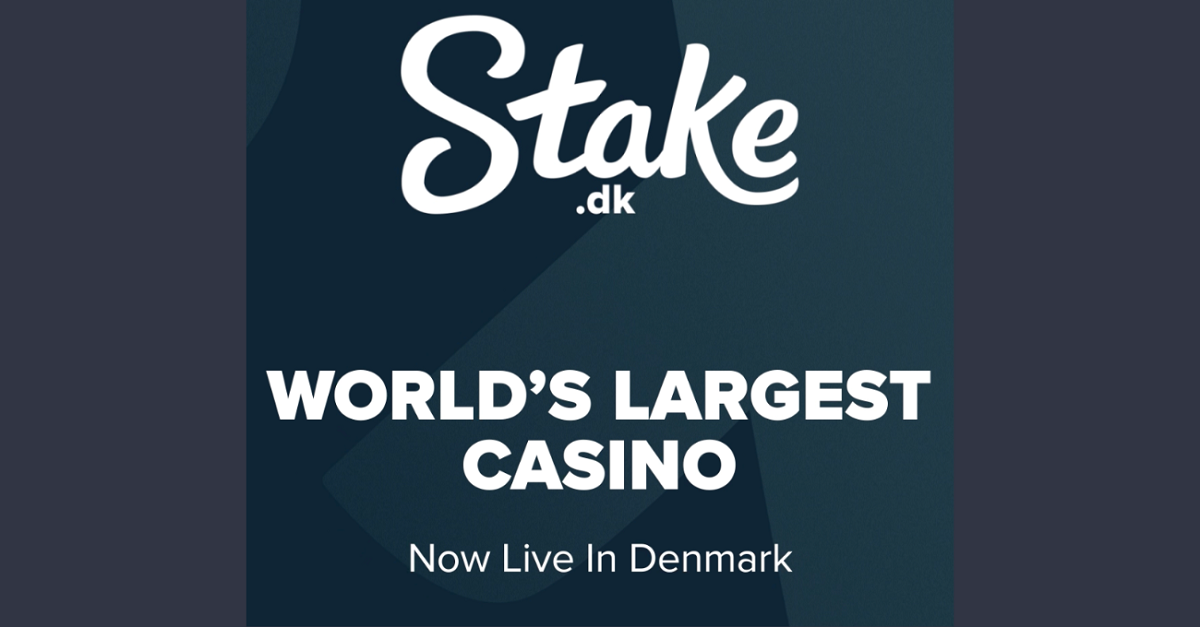
Stake, the largest online casino and sportsbook globally, today proclaims its official entry into Denmark after obtaining a five-year online casino and sports betting license. The shift reinforces Stake’s enduring dedication to enhancing its global growth strategy.
Denmark is often seen as a regulatory success within the European online gambling scene, and Stake has now introduced its flagship, internationally recognized product to the Danish market. Players will unlock access to Stake’s top-tier casino and sportsbook, showcasing exceptional games, cutting-edge technology, and an exceptional user experience, all provided with a strong local emphasis.
Starting 1 March 2026, Stake Denmark will set up its new headquarters at Parken Stadium, the national football stadium of Denmark and the home ground for FC Copenhagen.
Peter Eugen Clausen, Managing Director at Stake Denmark, said: “Denmark has one of the most well-regulated and competitive gaming markets in Europe, and that’s exactly what makes it so exciting. With Stake’s arrival, Danish players can expect a fresh, world-class experience backed by global scale and strong local focus. We’re raising the bar in terms of product, transparency, and entertainment, and I believe increased competition from brands like Stake will only drive the market forward in a positive way.”
Brais Pena, Chief Strategy Officer at Easygo, the technology company behind Stake, said: “Denmark marks our entry into the Nordics and represents a clear win in one of Europe’s most mature and high-value markets. With each new market, our momentum continues to build as we deliver on our global expansion strategy.”
Since its inception in 2017, Stake has positioned itself as the top betting and gaming brand globally by continually presenting advanced technology and novel gaming experiences for players around the globe. Upon entering Denmark, Stake maintains its dedication to player safety and responsible gaming, guaranteeing that gambling stays enjoyable, secure, and entertaining by providing extensive tools and resources that assist customers in comprehending and monitoring their gambling behavior.
The post Stake Goes Live in Denmark Following Five-Year Licence Approval appeared first on Eastern European Gaming | Global iGaming & Tech Intelligence Hub.
Big Daddy Gaming
Big Daddy Gaming® Expands European Footprint After MGA Licence Approval
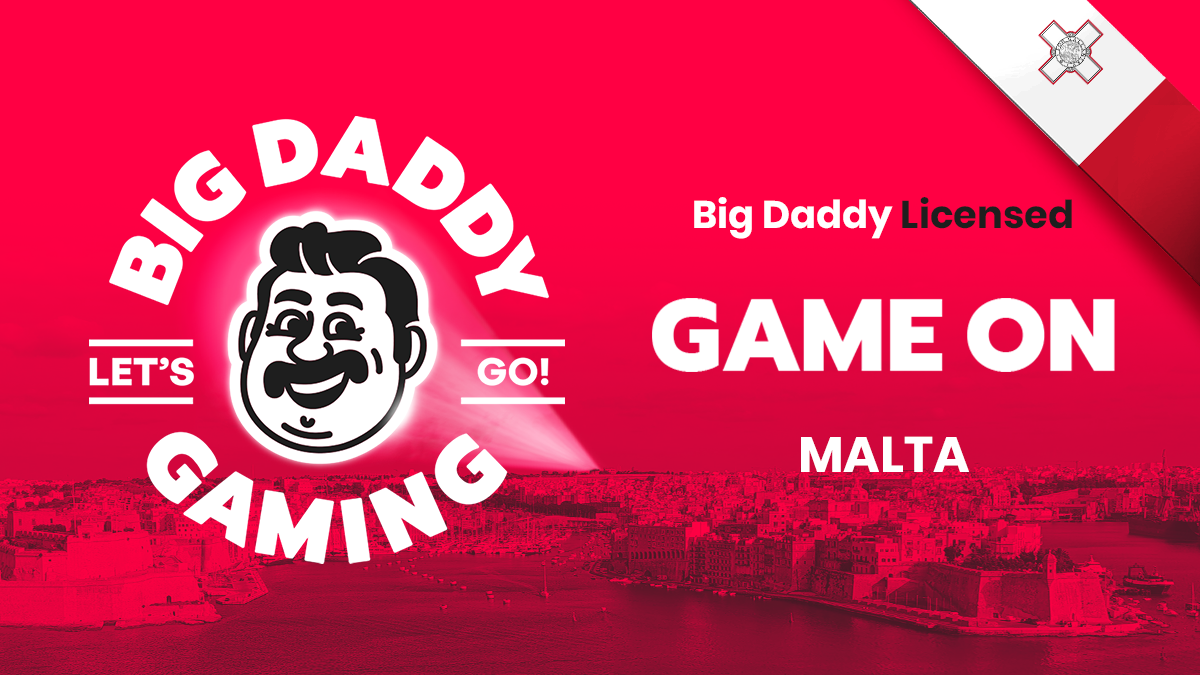
New achievement bolsters regulatory framework as studio speeds up European expansion.
Innovative slots studio Big Daddy Gaming® has obtained a B2B supplier license from the Malta Gaming Authority (MGA), representing a significant advancement in the studio’s plan to establish a solid, regulation-focused presence in Europe’s leading markets.
This accreditation allows Big Daddy Gaming to provide its expanding range of slot titles to MGA-licensed operators, greatly increasing the studio’s potential market and aiding its continuous commercial rollout in regulated territories.
The endorsement comes after Big Daddy Gaming’s recent attainment of regulatory approval from the Swedish Gambling Authority. This occurs during a time of significant early progress for the newly established studio, with multiple partnerships already in place with well-known operators and aggregators, highlighting the provider’s dedication to fostering long-lasting relationships with top-tier brands.
As a vital element of Big Daddy Gaming’s strategy for market entry, the studio has made certain that its technology, games, and operational procedures comply with one of Europe’s most stringent regulators.
The license further aids the ongoing launch of Big Daddy Gaming’s initial games, which are centered on the studio’s fundamental creative principle of Reel Fun. Real Value., merging recognizable, player-friendly features with a comedic angle, aimed at achieving high engagement and evident commercial success for operators.
The MGA approval signifies a crucial point in Big Daddy Gaming’s early business path, solidifying its role as a new studio dedicated to regulation, dependability, and sustainable growth while it broadens its presence in Europe’s regulated markets.
Erland Hellström, CEO at Big Daddy Gaming®, said: “Securing our MGA licence is an important step for us as we continue to build Big Daddy Gaming® with regulation at the forefront. From day one, our focus has been on creating a studio that operators can trust, both creatively and operationally.
“Malta is one of the most respected regulatory environments in the industry, and achieving this approval reflects the work our team has put into building compliant, market-ready slots. Combined with our recent progress in Sweden, it gives us a strong platform to continue scaling our content with confidence.”
The post Big Daddy Gaming® Expands European Footprint After MGA Licence Approval appeared first on Eastern European Gaming | Global iGaming & Tech Intelligence Hub.
Australia
NSW: Hospitality and Racing Strategy 2026-28 and Regulatory Priorities 2026
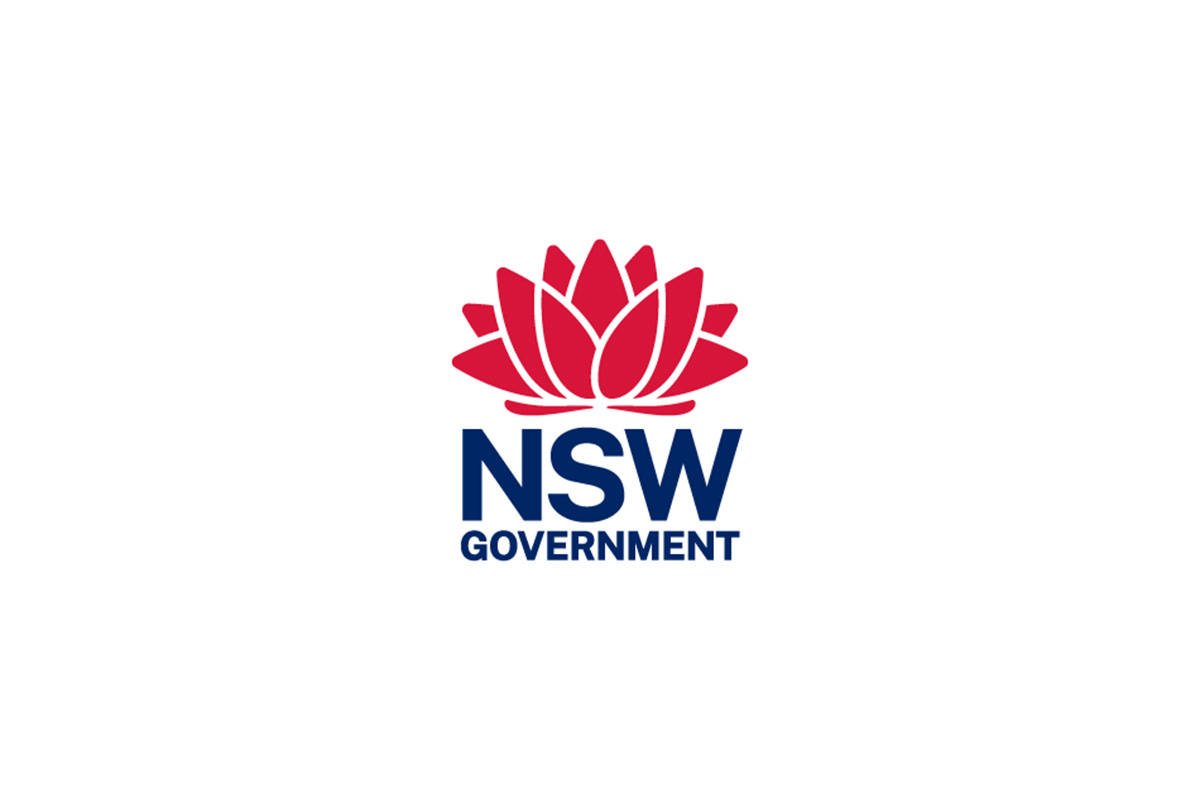
Liquor & Gaming NSW has published the Hospitality and Racing Strategy 2026-28, setting a clear path for reducing harm, supporting responsible industry growth and meeting evolving community expectations. The Strategy outlines Hospitality and Racing’s vision, regulatory posture and strategic objectives.
It outlines three strategic objectives which will guide the work to support communities, individuals and the industry. The first is targeted harm reduction, using better data, education and engagement to focus on the areas where we can make the biggest difference.
The second is outcome‑focused, responsive regulation, by making use of streamlined, place‑based and community‑informed approaches that deliver meaningful, real-world outcomes.
Third is promoting modern tools, skilled teams and smart decisions, investing in its capability, improving how it uses data and supporting consistent decision making across hospitality and racing.
Regulatory Priorities 2026
Alongside the new strategy, Liquor & Gaming NSW has also issued its Regulatory Priorities 2026. This sets out where the department will be focusing its regulatory attention over course of the year. It provides transparency on Liquor & Gaming’s forward regulatory agenda and gives the industry the opportunity to proactively engage about the issues they are concerned about.
The post NSW: Hospitality and Racing Strategy 2026-28 and Regulatory Priorities 2026 appeared first on Eastern European Gaming | Global iGaming & Tech Intelligence Hub.
-

 Amusnet5 days ago
Amusnet5 days agoWeek 7/2026 slot games releases
-

 Aphrodite’s Kiss5 days ago
Aphrodite’s Kiss5 days agoLove on the Reels: Slotland Introduces “Aphrodite’s Kiss”
-

 Denmark6 days ago
Denmark6 days agoRoyalCasino Partners with ScatterKings for Company’s Danish Launch
-

 Booming Games6 days ago
Booming Games6 days agoTreasure Hunt Revival — Booming Games Launches Gold Gold Gold Hold and Win
-

 Baltics6 days ago
Baltics6 days agoEstonia to Reinstate 5.5% Online Gambling Tax From March 1
-

 Brino Games5 days ago
Brino Games5 days agoQTech Games integrates more creative content from Brino Games
-

 ELA Games6 days ago
ELA Games6 days agoELA Games Unveils Tea Party of Fortune — A Magical Multiplier Experience
-

 Bet Rite6 days ago
Bet Rite6 days agoSpintec Expands into Canada with Bet Rite



